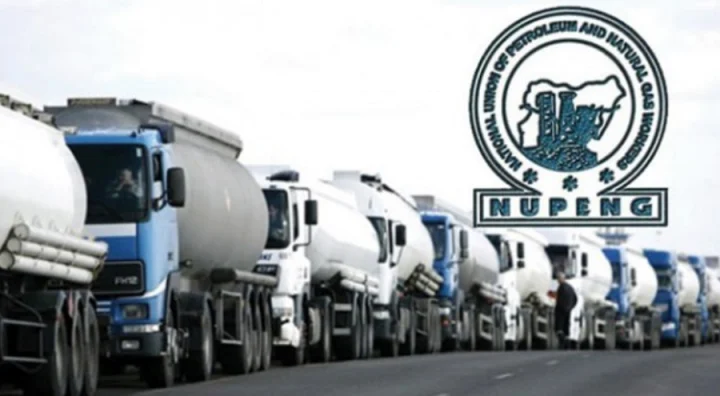The Nigerian Union of Petroleum and Natural Gas Workers (NUPENG) has announced the reopening of fuel depots across the country after reaching an agreement with the management of Dangote Petroleum Refinery. The decision comes after days of tension that saw the union directing tanker drivers to halt lifting fuel products from depots linked to the refinery, raising concerns about potential supply disruptions and queues at filling stations.
According to union officials, the industrial action was triggered by unresolved issues between depot owners and the Dangote refinery over pricing structures, distribution margins, and product allocation. NUPENG had argued that some of its members were being marginalized in the process, while also raising concerns about depot charges and transparency in supply arrangements. The standoff had prompted fears that it could escalate into a nationwide fuel shortage, especially as the Dangote Refinery has become a key player in Nigeria’s fuel supply chain since commencing operations.

The breakthrough came after several rounds of negotiations mediated by the Nigerian Midstream and Downstream Petroleum Regulatory Authority and other stakeholders in the oil and gas sector. Sources close to the talks confirmed that both parties agreed to adopt a pricing formula that accommodates depot operators while ensuring that pump prices remain stable for consumers. The agreement also included commitments to improve product allocation across the country, especially in underserved regions, to prevent artificial scarcity.
NUPENG leaders, in a statement, said they decided to reopen depots in the national interest after assurances were given that their concerns would be addressed. The union emphasized that it was not its intention to create hardship for Nigerians but to safeguard the welfare of its members and ensure a fair operating environment in the downstream sector. They added that continued engagement with the Dangote refinery would be maintained to prevent future breakdowns in communication and operations.
The Dangote Refinery, which officially began fuel production earlier this year, has been described as a game-changer for Nigeria’s downstream oil sector, with capacity to meet domestic demand and export surplus products. However, its dominant position has also raised questions about competition, pricing control, and the role of independent depot operators. Analysts say the recent standoff with NUPENG highlights the complexities of integrating such a massive project into an existing distribution system that has long relied on a network of depots, marketers, and unions.
Petrol marketers and fuel station owners have welcomed the resolution, noting that any prolonged closure of depots would have created bottlenecks in the supply chain and led to panic buying. Some filling stations had already begun experiencing longer queues as a result of restricted product lifting, but the reopening of depots is expected to normalize supplies within days. The Nigerian Association of Road Transport Owners (NARTO) also expressed relief, as tanker drivers who had been idled by the impasse can now resume operations.
The federal government, through the petroleum regulatory authority, has praised both NUPENG and Dangote Refinery for their willingness to reach common ground. Officials reiterated that stability in the downstream sector remains a priority, especially as the country navigates post-subsidy reforms and seeks to avoid the frequent fuel crises that have historically crippled economic activities. They also reaffirmed government’s commitment to providing a level playing field for all operators to promote competition and efficiency.
Energy experts say the resolution demonstrates the importance of dialogue and collective problem-solving in the oil and gas industry. They note that as the Dangote Refinery ramps up production and expands its market footprint, it will be crucial to maintain open communication with unions, depot owners, marketers, and regulators to ensure smooth operations. They also warned that any future breakdowns in relationships could trigger ripple effects on fuel availability, transport costs, and inflation.
With depots now reopened, Nigerians are expected to see gradual improvements in fuel distribution across the country. The episode has, however, underscored the fragile balance between a single massive refinery, existing depot structures, and the unions that power Nigeria’s distribution network. For NUPENG, the latest agreement reaffirms its role as a strong advocate for workers and stakeholders in the downstream oil sector, while for the Dangote Refinery, it signals the need to manage not only the technical and financial aspects of operations but also the human and industrial relations challenges that come with its scale.
The resumption of normal operations offers relief for motorists and businesses, but it also stands as a reminder of the delicate negotiations required to stabilize Nigeria’s energy sector as it transitions into a new phase of domestic refining capacity.
Support InfoStride News' Credible Journalism: Only credible journalism can guarantee a fair, accountable and transparent society, including democracy and government. It involves a lot of efforts and money. We need your support. Click here to Donate
